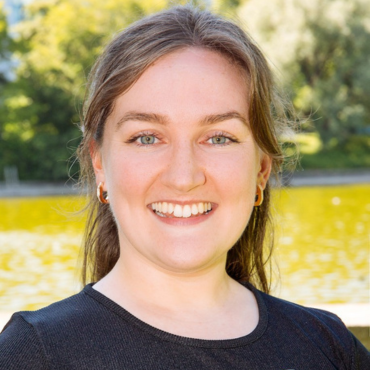
My PhD project was in the field of translational medicine, focussing on a potential treatment for the cardiometabolic complications (such as insulin resistance and type 2 diabetes) of Obstructive sleep aponea (OSA). OSA is a highly prevalent disorder which is characterised by the repeated collapse of the upper airways which results in fluctuating oxygen levels in the body known as intermittent hypoxia (IH). IH has been recognised to play a potential key role in the pathogenesis of OSA by inducing a pro-inflammatory phenotype of adipose tissue with IH-induced M1 macrophage polarisation impeding insulin signalling. Weight loss can improve metabolic function in OSA. However, weight loss can be difficult to achieve by conventional measures alone. As such, this project aimed to investigate if Liraglutide (a glucagon-like peptide-1 (GLP-1) receptor agonist), which is superior in achieving weight loss and has also been found to have profound anti-inflammatory effects, could potentially offset IH-induced inflammation and insulin resistance.
Through utilisation of state-of-the-art cell culture and murine models of IH, we were able to
evaluate the effects of Liraglutide on IH-mediated pro-inflammatory macrophage
polarisation, insulin signalling and systemic insulin sensitivity.
We demonstrated that Liraglutide attenuated IH-induced inflammation in primary murine
macrophages in vitro. Improvements in blood glucose and insulin in our in vivo study
correlated strongly with Liraglutide-induced weight loss. Liraglutide had no direct effect on
IH-induced insulin resistance, indicating that Liraglutide acts primarily through weight loss
rather than on specific IH-induced mechanisms.
The main highlight of my time as a PhD student was having the opportunity to carry out part of my research abroad. The in vivo study in my project was designed and carried out in collaboration with the “Laboratoire Hypoxie et Physiopathologie” (HP2) laboratory group of Professor Jean-Pepin and Dr. Claire Arnaud of the Université Grenoble Alpes, France. It was amazing to be able to work with some of the top researchers in my field in a completely new environment, and to gain some new research and laboratory skills in a different setting.
During my PhD I was also awarded the European Respiratory Society (ERS) grant for Best Abstract in Respiratory Sleep medicine and had the chance to present my research at both the ERS online conference in 2021 and at their 2022 conference in Barcelona which were key highlights for me as I was able to disseminate and discuss my PhD research with a wide range of clinical researchers.
Of course, the final highlight, and probably the most emotional, was the day I passed my viva voce. It was an amazing experience to be able to present my thesis to people who were just as enthusiastic about my research as I was, and to be able to celebrate the conclusion of three years of hard work with my family and friends afterwards.
I think the main advice I would give someone who is considering doing a PhD would be to ensure it is a topic that you are really passionate about. A PhD can be extremely difficult and frustrating, especially when experiments do not always go as planned, so it is vital that you love the area of research you choose because that will keep you motivated even during the most challenging times. I would also encourage people to ignore the peer pressure from other PhD students to work long exhausting hours, when it is not always necessary. Make sure to give yourself regular breaks and annual leave, because a work life balance is extremely important when undertaking a PhD.
While a PhD is challenging, there are some great aspects to pursuing a PhD. I was very lucky to have the opportunity to work with my supervisor Prof Silke Ryan, a leading expert in her field, as she provided me with unending guidance, expertise, and encouragement throughout my three years as a PhD student. Studying in UCD also allowed me a significant amount of freedom, not only when it came to my research and course modules, but the wide variety of on campus events, especially social events in Conway, made the whole experience very enjoyable.
Visit Ailbhe's Orcid profile here.